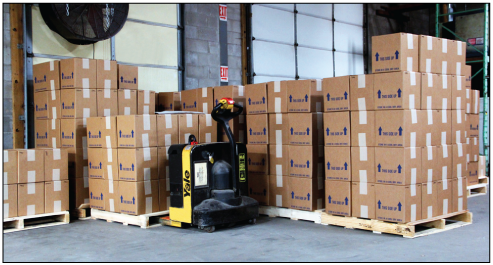
Tim Story has experience of 28 years in the
transportation management system. He is currently the executive vice president
of freight operations at Unishippers. He observed shipping practices from a
very early age. He noted how most of the work was done manually by his father
and grandfather. Pricing was also a major issue back then. In the present,
every bit of information is easily accessible due to technological
advancements. The implementation of tech helped small businesses to make their
shipping process economical and effective.
Let’s elaborate on the Steps that should be taken
while choosing a shipping carrier for your business.
It is suggested to partner with a reliable
carrier. A lot of research should go into this, as this is the crucial point of
the process. At first, a collection of references is to be made acquired from
clients and trustworthy companies. It is advisable to choose a carrier that
provides the option of tracking and tracing. This feature provides better
transparency and control of the shipment with the ability to locate any package
at any point in time.

It is important to get an idea about the
resources of the handpicked carrier. Carriers are different from each other
based on the type of shipping service it offers. It is recommended to
understand the specific type of shipping service required for the goods
involved in the business. To ask the carrier about their experience and
capability of moving the goods in your business is a must. An inquiry should be
made on the safety measures taken by the carrier during transit.
One should ensure that the carrier is compliant
to the specific standards set by the Federal Motor Carrier Safety
Administration. The checklist of this organization demands the carriers to have
renewed insurance, file specific registrations, updated documents along with
compliance to safety standards. A carrier with poor compliance rating should
not be the first choice.
Every carrier has its own liability programs.
Research should be done to understand the limits of liability. It is not to be
assumed that the carrier’s liability program will cover the charges for damage
in transit.
If there is a requirement to ship goods at a
specific date, then the business should opt for a carrier that offers
guaranteed delivery services and not only rely on estimated date of delivery
from other carriers.
Now comes the steps NOT to take while choosing a
carrier for a small-scale business.
It is suggested to not overlook the insurance of
your package. It is important in the sense that once it is shipped, it is
handled by many people on different modes of transport. So a possible human
error can lead to the loss or damage to your goods. If your package is insured,
a complete refund of the value of the package misplaced will be made.
Every country has different rules and regulations
imposed on the type and size of good that can be shipped in that country. So it
is not advisable to assume every type of product can be shipped anywhere.
Consultation with the carrier before shipping a package is a good option.

Packing is an important factor, and proper
packaging is mandatory before shipping a package. The best way to ensure proper
packing is to tape the opening and seams of the box with brown reinforced
packing tape. Reuse of shipping boxes for economic reasons is not a good option
as the structural integrity of cardboard boxes reduce with every shipment.
A business should not compromise on the quality
of services provided by the carrier. Investment on a moderately high-cost
carrier service is preferred as air transfers involve less handling and top
priority is given to goods on board, saving hours of time.